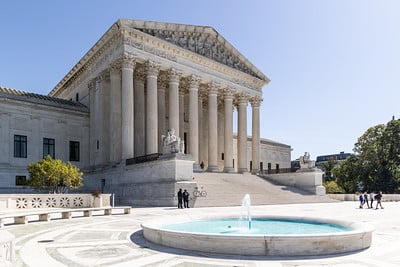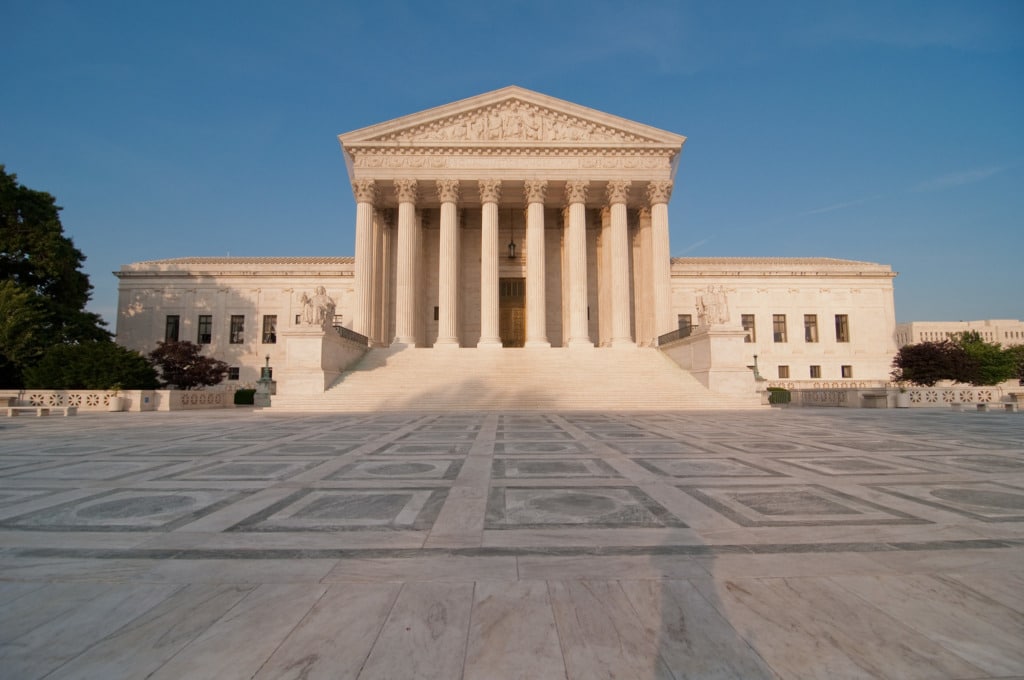New Essay on the Future of Fuld v. PLO
I have expanded on my prior TLB posts on Fuld v. PLO, including a series of posts I wrote last summer critiquing the originalist case for unlimited personal jurisdiction under the Fifth Amendment, in a new essay that is forthcoming in the Yale Law Journal Forum and is now available on SSRN. In this new…
Continue ReadingSolicitor General Recommends Granting Cert in Cisco
In Doe v. Cisco Systems Inc. (2023), the Ninth Circuit held that claims for aiding and abetting human rights violations could be brought under the Alien Tort Statute (ATS) against Cisco Systems and under the Torture Victim Protection Act (TVPA) against Cisco’s former CEO. The plaintiffs allege that Cisco designed, built, and maintained a surveillance…
Continue ReadingOral Arguments Over Trump’s Tariffs
On November 5, 2025, the Supreme Court heard oral argument in Learning Resources, Inc. v. Trump to determine whether the International Emergency Economic Powers Act (IEEPA) permits President Trump to impose sweeping emergency tariffs. Although it is not clear when the Court will rule, there is pressure to reach a decision soon because the longer…
Continue ReadingTransnational Litigation at the Supreme Court, October Term 2025
Today is the first day of the Supreme Court’s October Term. This post briefly discusses transnational litigation cases in which the Court has already granted cert, as well as others that are in the pipeline and could be decided this Term. Cases in which the Court Has Granted Cert So far, the Supreme Court has…
Continue ReadingThrowback Thursday: Forecasting Fuld
Nearly a decade ago, Professor Aaron Simowitz identified not only the problem presented in Fuld v. PLO (2025), but also the solution the Supreme Court ultimately adopted. This Throwback Thursday post highlights Simowitz’s article Legislating Transnational Jurisdiction (57 Va. J. Int’l L. 325), which offers important insights for those trying to make sense of Fuld’s…
Continue ReadingUnpacking the Originalist Argument for Maximalist Personal Jurisdiction, Part IV: Picquet v. Swan
This is the fourth in a series of posts questioning the originalist argument for unlimited personal jurisdiction in the federal courts. The prior posts have argued that many of the sources cited by proponents of the theory, including early admiralty cases and twentieth-century cases about the extraterritorial reach of Congress’s prescriptive jurisdiction, do not bear…
Continue ReadingUnpacking the Originalist Argument for Maximalist Personal Jurisdiction, Part III: Admiralty Jurisdiction
This is the third in a series of posts questioning the originalist argument for maximalist personal jurisdiction. The crux of the originalist argument is that early federal decisions discussed limits on personal jurisdiction in terms of international law (not constitutional constraints) and that Congress could override international law. Thus, the theory goes, Congress as an…
Continue ReadingUnpacking the Originalist Argument for Maximalist Personal Jurisdiction, Part II: The Logic of Syllogisms
This is the second post in a series questioning the originalist argument for maximalist personal jurisdiction, as embraced by Justices Thomas and Gorsuch in their Fuld v. PLO concurrence. Pivotal to the originalist theory of maximalist personal jurisdiction is the argument that limits on adjudicative power were initially understood not as due process limits (or…
Continue ReadingUnpacking the Originalist Argument for Maximalist Personal Jurisdiction
The Supreme Court’s recent decision in Fuld v. PLO declined to address what it called the “maximalist” theory of personal jurisdiction put forward by the petitioners, several amici (including the House of Representatives), and some vocal lower court judges: That as a matter of original understanding, the Due Process Clause of the Fifth Amendment places…
Continue ReadingFuld’s Implications for the FSIA (and Other Federal Statutes)
In Fuld v. PLO, the U.S. Supreme Court held that “the Fifth Amendment does not impose the same jurisdictional limitations as the Fourteenth.” This means that Congress may authorize federal courts to exercise personal jurisdiction over defendants that state courts may not constitutionally reach. In Fuld, the Court upheld the constitutionality of the Promoting Security…
Continue Reading



